Union talks over future of SSI Redcar steel plant
- Published
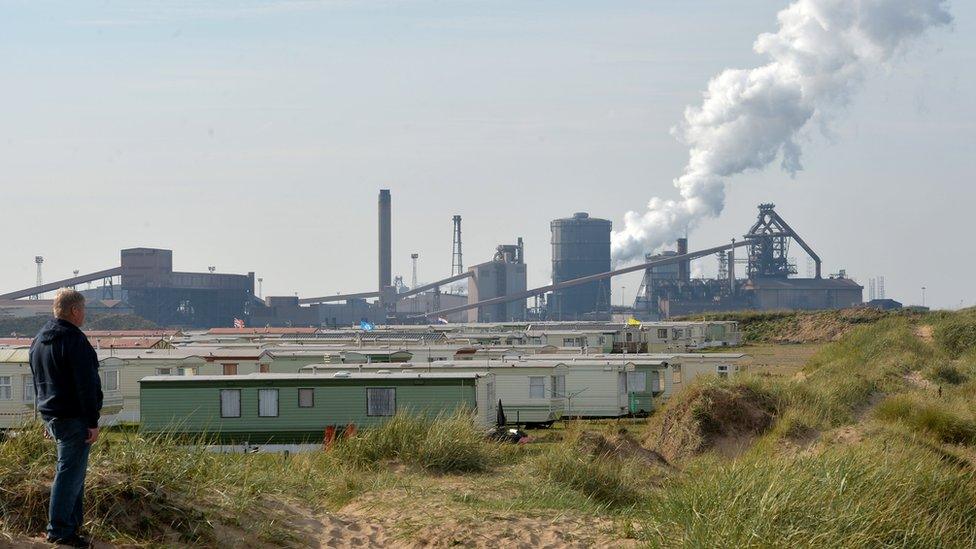
The crisis in steel prices is being blamed on a surplus of cheap Chinese product on the world market
Union officials are in talks with SSI's Redcar plant executives after the firm announced the loss of 1,700 jobs.
On Monday, SSI said it was mothballing iron and steelmaking at the site for up to five years, citing poor trading conditions and low world steel prices.
It said prices would need to recover before the plant could reopen.
The focus of the talks is on the mothballing process, which will involve 450 people continuing to work at the Teesside plant.
Part of the process involves keeping the coke ovens and the power station in operation in order for steel production to resume if it is deemed possible.
The Thai-owned company initially "paused" production of iron and steelmaking at the site, one of the largest steel plants in the UK, on 18 September.
"People are devastated; this is a big employer and there are no jobs around"
It said it had carried out an assessment of its business and concluded there was "no other option".
'Sour taste'
Frances O'Grady, general secretary of the TUC, said pressure should be put on the government to devise a rescue plan.
She said: "Energy costs in Britain are on average 80% higher than those in the rest of Europe and do we really think that Angela Merkel would sit by and let the German steel industry go down the pan? Certainly not.
"She would be calling in the unions and the company and looking at how we secure the long-term future of what is a strategic industry for the whole economy."
Middlesbrough MP Andy McDonald, who is also Parliamentary Private Secretary to the shadow chancellor, said that the true number of job losses, once contractors and the supply chain were taken into account, could be about 9,000.
"The government should be playing a proper role, not just picking up the pieces," he said.
"We should be looking at the sustainability of the steel industry, with the government going in as administrators, keeping it active, stockpiling steel if necessary."
But James Wharton, Conservative MP for Stockton South and Minister for Local Growth and the Northern Powerhouse ruled out re-nationalisation.
"An industry which has made a loss over each of the last three years would pass that responsibility to the tax payer," he said.
"It would present huge issues for the rest of the steel market in this country in terms of how they would then be able to compete with, what will be, a nationalised company.
"It's just not something that is going to happen."
Jonathan Aylen, an expert on the steel industry from the University of Manchester, said it was hard to see what the government could do.
"Of course this leaves a very sour taste because seven years ago the banks, who'd acted completely irresponsibly, were bailed out," he said.
"And this firm instead invests and innovates for export and then, when the time comes, its fate is ignored."
During his maiden speech to the Labour conference in Brighton, Labour leader Jeremy Corbyn urged David Cameron to come to the aid of steel workers facing job losses on Teesside "as the Italian government has done" with its industry.
A Downing Street spokesman said ministers were "working to help those who will lose their jobs at the Redcar steel plant" and the government was "doing all we can to help workers effected".
The spokesman said it was "not clear" what Jeremy Corbyn was suggesting the government do to help workers in Redcar.
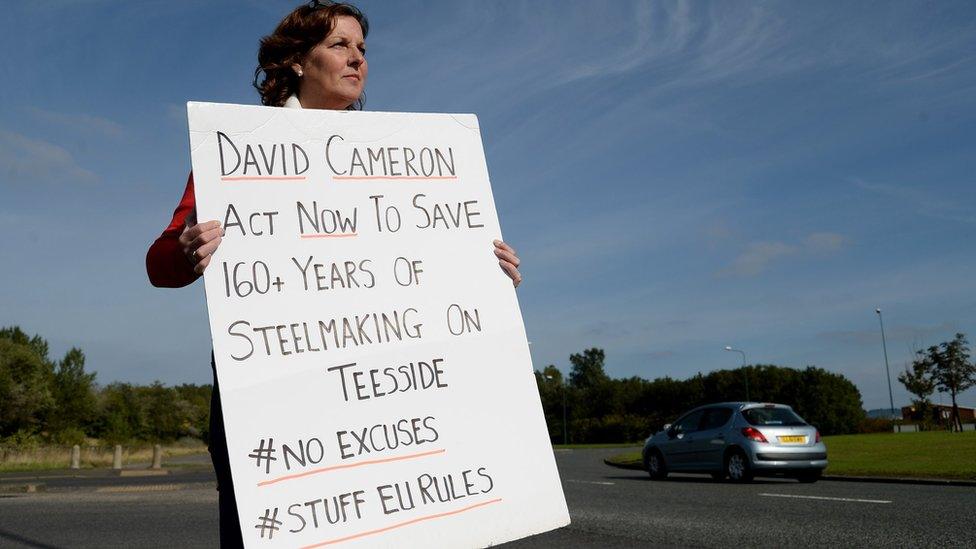
Several members of Linda Robinson's family have been employed at the steelworks
"Unemployment black spot"
Damian Griffiths, who works at the plant, said: "It's going to devastate the community, devastate families and I don't think they realise the effect it's going to have on the communities.
"It's going to massively affect [me]. I'm married, got a 12 year old daughter, for 13 years, all I've done is work in the steel industry.
"They're saying there's jobs, opportunities coming but as far as we can see, in the North East, it's one of the unemployment black spots in the UK."
Linda Robinson's father and grandfather worked at the plant and now her brother and son-in-law both are employed there.
She said: "People are devastated, I mean this is a big employer here, we have high unemployment and I don't know where they'll get jobs. There's no jobs around really, the oil and gas sector's flat so I don't know where they'll look for more work."
Unions are concerned that the future of the plant remains viable.
Roy Rickhuss, general secretary of the Community union, said: "We must make sure it's mothballed in a way it can come on again.
"We also have to retain skills, keep them in the community, so if it's possible to restart the plant we've got people with the skills to do that."
- Published29 September 2015
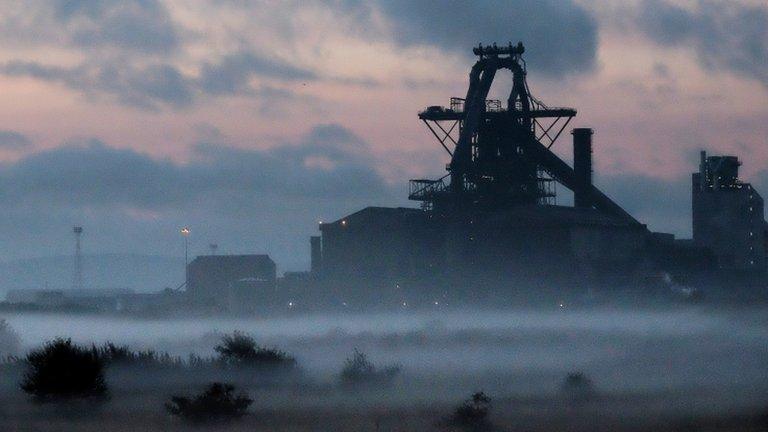
- Published28 September 2015

- Published28 September 2015
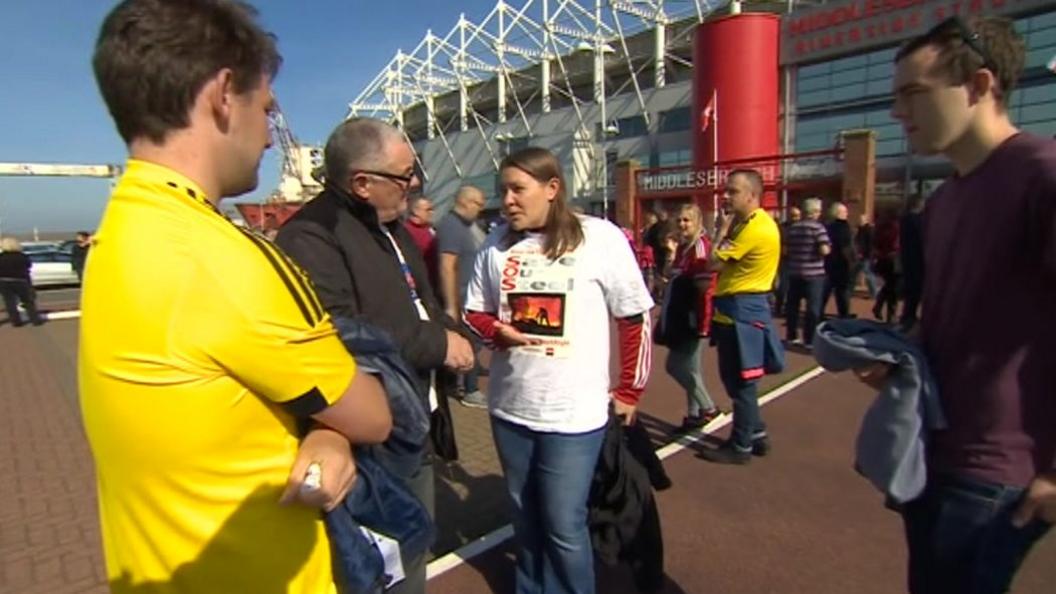
- Published29 September 2015
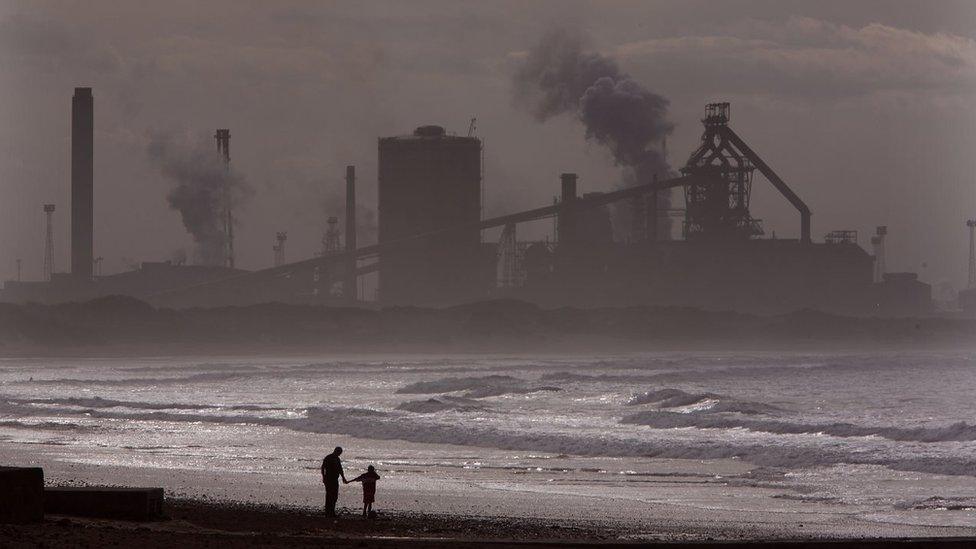
- Published23 September 2015

- Published20 September 2015

- Published18 September 2015
